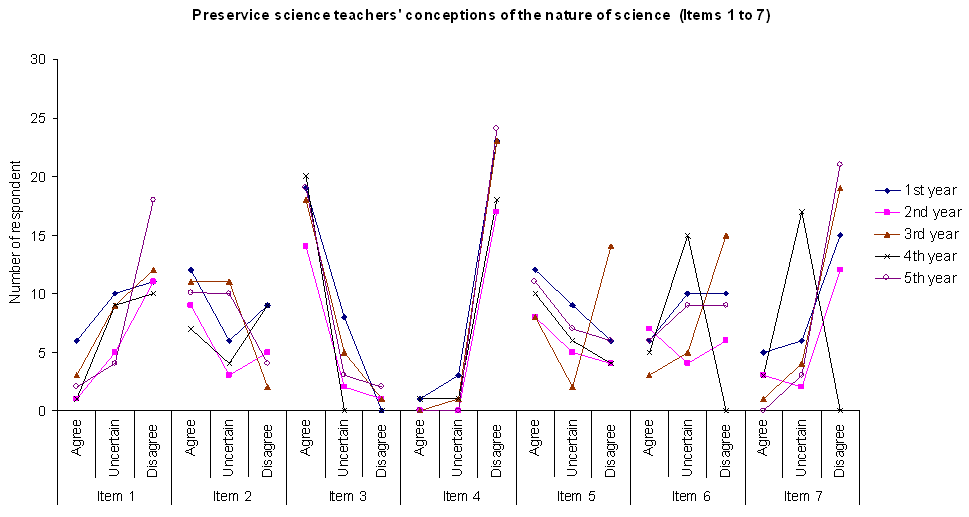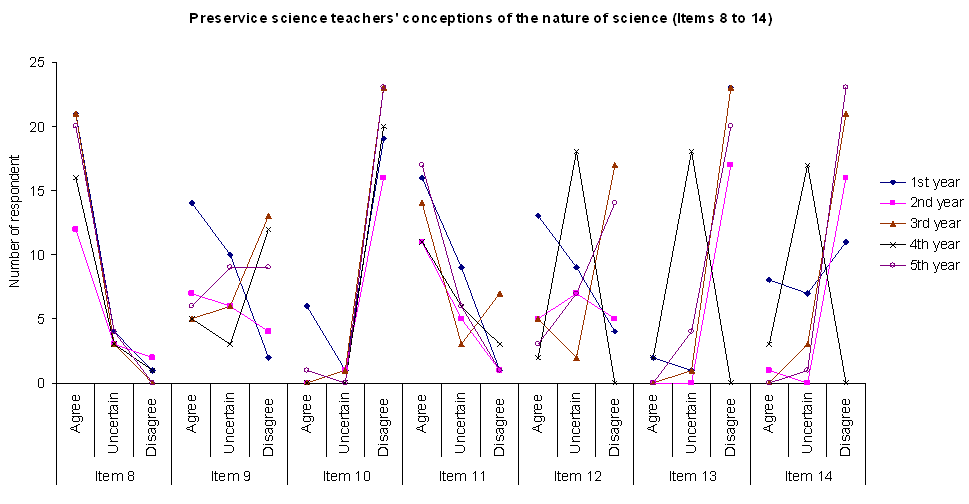Asia-Pacific Forum
on Science Learning and Teaching, Volume 10, Issue 1, Article 4
(June, 2009) |
Figure 1 The Myths of Science Questionnaire (MOSQ)
Directions: Please select the choice that best reflects your opinion and provide an explanation supporting your selection.
Statement
Opinion
1. Hypotheses are developed to become theories only
⌈ Agree ⌈ Uncertain ⌈ Disagree
..
2. Scientific theories are less secure than laws
⌈ Agree ⌈ Uncertain ⌈ Disagree
..
3.Scientific theories can be developed to become laws
⌈ Agree ⌈ Uncertain ⌈ Disagree
..
4. Scientific knowledge cannot be changed
⌈ Agree ⌈ Uncertain ⌈ Disagree
..
5. The scientific method is a fixed step-by-step process
⌈ Agree ⌈ Uncertain ⌈ Disagree
..
6. Science and the scientific method can answer all questions
⌈ Agree ⌈ Uncertain ⌈ Disagree
..
7. Scientific knowledge comes from experiments only
⌈ Agree ⌈ Uncertain ⌈ Disagree
..
8. Accumulation of evidence makes scientific knowledge more stable
⌈ Agree ⌈ Uncertain ⌈ Disagree
..
9. A scientific model (e.g., the atomic model) expresses a copy of reality
⌈ Agree ⌈ Uncertain ⌈ Disagree
..
10. Scientists do not use creativity and imagination in developing scientific knowledge
⌈ Agree ⌈ Uncertain ⌈ Disagree
..
11. Scientists are open-minded without any biases
⌈ Agree ⌈ Uncertain ⌈ Disagree
..
12. Science and technology are identical
⌈ Agree ⌈ Uncertain ⌈ Disagree
..
13. Scientific enterprise is an individual enterprise
⌈ Agree ⌈ Uncertain ⌈ Disagree
..
14. Society, politics, and culture do not affect the development of scientific knowledge
⌈ Agree ⌈ Uncertain ⌈ Disagree
..
Figure 2 Pre-service science teachers conceptions of the nature of science (Items 1 to 7)

Figure 3 Pre-service science teachers conceptions of the nature of science (Items 8 to 14)

